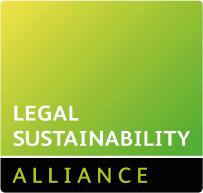Section 57 of the Criminal Justice and Courts Act 2015 sought to address the spiralling numbers of exaggerated claims for injury that our courts were being asked to deal with. Until that point, there was little in the way of sanction to stop litigants (in many cases egged on by their representatives) from inflating their claims either by exaggerating the effect of the symptoms on their everyday life or by contending an inability to do something that they were capable of doing.

Section 57 of the Criminal Justice and Courts Act 2015 sought to address the spiralling numbers of exaggerated claims for injury that our courts were being asked to deal with. Until that point, there was little in the way of sanction to stop litigants (in many cases egged on by their representatives) from inflating their claims either by exaggerating the effect of the symptoms on their everyday life or by contending an inability to do something that they were capable of doing.
Section 57 directs a court to dismiss a claim in its entirety if the claimant is found, on the balance of probabilities, to have been fundamentally dishonest. The dismissal would include any element of the claim in respect of which the claimant has not been dishonest. The potential benefits to insurers are obvious.
As a result, insurers have been willing to challenge inflated claims and the courts have been willing to give effect to s.57, meaning savings on cases are potentially significant. It must be remembered, however, that an allegation of fundamental dishonesty does not come without risk. The interplay between the often significant and long-lasting genuine injury has to be balanced against the potentially dishonest aspects of the claim to ensure that the test is made out.
Following the judgment in the case of Palmer v Mantas & Liverpool Victoria, we provide a reminder of the level of scrutiny that an allegation of fundamental dishonesty in high value claims will bring.
Click here to read more.
You may also like

Fundamentally Dishonest NTI Claim with Claimant Solicitors Called to Account
In the ongoing battle against fraudulent claims regarding non-tariff injuries (NTIs), HF in partnership with Hastings Direct, have seen not...

Supreme Court Decision on Mixed Injuries
The Claims Industry is at a Pivotal Moment The Supreme Court has handed down judgment in the whiplash ‘mixed injury’...

Claimant’s Solicitors Ordered to Pay Costs in Fundamentally Dishonest Claims
In the on-going fight against fraud and exaggerated claims in particular, HF and AXA have secured a victory against not...

HF & Admiral Catch Tinnitus Fraudster – The Rise of ENT Claims
HF, instructed by Admiral, have secured a significant victory in Court with a finding of fundamental dishonesty relating to a...






